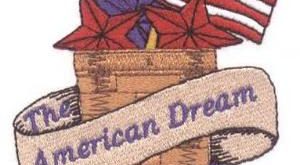Did The Great Gatsby Play Fail? Since its publication in 1925, The Great Gatsby has been one of the most celebrated novels in American literature. However, its early theatrical adaptations didn’t achieve the same level of success. The first major stage adaptation, written by Owen Davis in 1926, received a lukewarm response and is often regarded as a failure.
But why did The Great Gatsby Play fail? Was it due to the audience’s lack of interest, poor adaptation, or something else entirely? This article delves deep into the history of The Great Gatsby on stage, analyzing the reasons behind its struggles, the impact of alternative adaptations, and what future productions can learn from it.
The Origin of The Great Gatsby Play:
First Stage Adaptation (1926)
Only a year after F. Scott Fitzgerald’s The Great Gatsby was published, Owen Davis adapted the novel into a play. This version premiered at the Ambassador Theatre in New York and starred James Rennie as Jay Gatsby and Florence Eldridge as Daisy Buchanan.
Owen Davis’s Role in the Adaptation
Davis was an accomplished playwright, known for writing commercially successful plays. However, his approach to The Great Gatsby leaned towards melodrama, which failed to capture the novel’s deeper themes of wealth, disillusionment, and the American Dream.
Initial Reception of the Play:
How Critics Responded?
The 1926 play received mixed-to-negative reviews. Critics noted that it lacked the emotional depth and complexity of Fitzgerald’s novel. Some believed the fast-paced storytelling didn’t allow enough time to develop the characters properly.
Audience Reception and Reviews
While some theatergoers appreciated the attempt to bring Gatsby to life, others found it underwhelming. The play closed after only a short run, indicating a lack of strong audience interest.
Comparison with the Novel:
Challenges of Adapting Fitzgerald’s Writing
Fitzgerald’s novel relies heavily on introspection and poetic prose. Translating these literary elements into dialogue-driven theater was difficult, and much of the novel’s nuance was lost.
Differences Between the Play and the Book
- The play simplified the novel’s themes
- Certain complex characters were made one-dimensional
- The setting and atmosphere of the Jazz Age weren’t fully captured on stage
The Influence of the 1926 Film Adaptation:
How the Silent Movie Overshadowed the Play?
In the same year the play was released, a silent film adaptation of The Great Gatsby was produced. This movie drew more attention than the play, making it difficult for the stage version to gain traction.
Lost Film and Its Historical Impact
Unfortunately, no known copies of the 1926 film exist today, making it impossible to compare the adaptation styles directly. However, contemporary reports suggest that the film was more engaging than the play.
Why Did The Great Gatsby Play Fail?
- Lack of Literary Recognition at the Time – The novel itself was not a major success in the 1920s, so the play didn’t have a strong fanbase to draw from.
- Weak Character Portrayal on Stage – The adaptation failed to capture Gatsby’s depth and mystery.
- Struggles with Theatrical Storytelling – The novel’s first-person narration and symbolic elements were difficult to portray effectively in a live performance.
FAQs
- Why did the 1926 The Great Gatsby play fail?
The play failed due to weak adaptation, lack of audience interest, and competition from the silent film version.
- Were there any successful Great Gatsby adaptations?
Yes, later adaptations, including Baz Luhrmann’s 2013 film and immersive stage experiences, gained popularity.
- Has The Great Gatsby been adapted for the stage again?
Yes, several modern stage productions have been created, some receiving better reception than the original 1926 version.
- What made the novel difficult to adapt into a play?
The novel’s poetic writing, deep symbolism, and first-person perspective made it challenging to translate into a live performance.
- Is there a recorded version of the 1926 play?
No, there are no known recordings of the play, but the script and reviews still exist.
- Why is The Great Gatsby more successful today?
The novel has grown in literary stature over time, and modern adaptations have found ways to capture its themes more effectively.
Conclusion
The 1926 stage adaptation of The Great Gatsby failed to make an impact, mainly due to poor execution and a lack of audience interest at the time. However, as the novel gained recognition over the years, filmmakers and playwrights have continued to experiment with new adaptations. While the early play struggled, The Great Gatsby remains an enduring cultural masterpiece that continues to inspire artists across various mediums.



